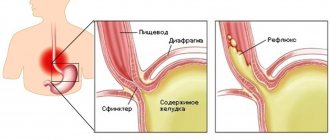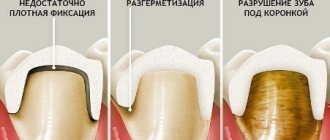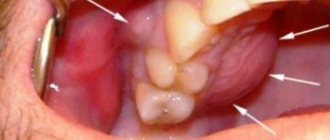A moldy taste in the mouth is often a sign of a fungal infection in the body. At home, various types of microorganisms can develop unnoticed, but the greatest danger among them is a fungus from the genus Aspergillus. Depending on the habitat and type of food, it can be represented by 200 varieties of highly pathogenic and toxic types of mold.
Aspergillosis
Aspergillosis is an infectious disease of the skin, lungs, paranasal sinuses and other internal organs caused by moldy fungi Aspergillus. These fungi enter the human body by inhaling spores. Of particular concern is the fact that they are widespread in nature and are found not only in soil, flour or cereals, but also simply in dusty rooms. Cases have been recorded in which certain forms of aspergillosis (for example, pulmonary aspergillosis) affected people even in a hospital setting. The cause of aspergillosis is still the same – dust and insufficiently responsible attitude towards cleaning premises. In some cases, symptoms of aspergillosis manifest as an endogenous infection, but this is rather the exception to the rule and is only true for people with weakened immune systems. In recent years, the problem of aspergillosis infection in persons with various immunodeficiencies has become quite acute. Suffice it to say that pulmonary aspergillosis is detected in 20% of patients diagnosed with HIV. First, aspergillosis affects the lungs, then the pleura and lymph nodes. Aspergillosis spreads through blood vessels to other organs. Very often, pulmonary aspergillosis turns into generalized (septic), which in 50% of cases leads to the death of the patient. Let us note that the disease is not transmitted from person to person.
Symptoms of aspergillosis
The duration of the incubation period is not precisely established, however, it is known that pulmonary aspergillosis can affect any organs and tissues. Doctors distinguish several forms of aspergillosis depending on where exactly the pathogens are localized.
Pulmonary aspergillosis - aspergillus settles on the surface layers of the bronchial mucosa and in the lungs. As the infection progresses, more and more body systems are involved in the process. Patients experience:
- general weakness;
- cough with gray sputum;
- increased body temperature;
- chills;
- shortness of breath, chest pain;
- lack of appetite;
- bad dream.
In addition to the above-mentioned symptoms of aspergillosis, patients experience a moldy taste in their mouth. Sometimes greenish lumps are found in the sputum, which are a collection of fungi. Note also that the chronic form of aspergillosis is usually secondary. This means that when chronic aspergillosis is diagnosed, treatment first of all involves searching for the primary disease, the clinical symptoms of which are often superimposed on a secondary infection. The probability of death with this form of the disease ranges from 20 to 37%.
Septic aspergillosis - symptoms manifest themselves against the background of severe suppression of the immune system. Patients experience: lesions of the gastrointestinal tract, moldy breath, liquid foamy stools, red nodules on the skin, brain abscesses. Against the background of opportunistic infections and a depressed immune system, aspergillosis often leads to the death of the patient (in at least 50% of cases).
Aspergillosis of the ENT organs - occurs after operations on the inner ear or previous diseases of the larynx and nasal mucosa. Aspergillosis is common among people working in textile mills and malt mills. The symptoms of this form of aspergillosis are similar to those of external and otitis media.
Symptoms
To determine what disease or phenomenon the taste of mold in the mouth is a sign of, you need to clarify in combination with what other problems it is detected and when exactly it bothers you.
For example, if a person has been in a room with high humidity for a long time, where there is musty, stale air, then along with the unpleasant odor, a headache, cough, and runny nose appear. It is possible that infection with pathogenic microorganisms has occurred. Similar symptoms also occur in people who work in the textile, agricultural, paper or chemical industries.
In the presence of viral or infectious diseases of some organs, additional concerns include sore throat, runny nose, inflammatory processes in the oral cavity, etc. If the taste is associated with the functioning of the gastrointestinal tract, then the patient complains of the usual symptoms in the form of frustration, nausea, vomiting and etc.
Based on these manifestations, doctors are able to suspect what specific problem influenced the appearance of the unpleasant feeling and the functioning of which organ needs to be checked more carefully.
Treatment of aspergillosis
Regardless of the type of infection, treating aspergillosis is a very labor-intensive task.
Chemotherapy and antibacterial agents do not lead to the expected effect, as indeed do all other methods of combating infectious diseases known to doctors. For this reason, in recent years, when aspergillosis is diagnosed, treatment is based on the use of surgical methods. Patients undergo a lobectomy with resection of the affected organs. If the operation was performed by a competent specialist in compliance with all established procedures, the intervention is tolerated without complications and gives a good prognosis for the future. For advanced forms of pulmonary aspergillosis, surgical treatment is used in conjunction with conservative methods. Patients with aspergillosis are prescribed amphotericin B, oxacillin, nystatin, erythromycin, and tetracycline antibiotics. At the same time, the person takes vitamins. Also, for patients with aspergillosis, restorative treatment is recommended. When using antifungal drugs, the amount of antibodies in the blood increases sharply, but by the end of treatment it returns to normal. If pulmonary aspergillosis leads to lesions of the skin and mucous membranes, patients are recommended to take antifungal and anti-inflammatory drugs.
As for treatment prognosis. Pulmonary aspergillosis is fatal in 20-35% of cases (in HIV-infected patients, the mortality rate reaches 50%). When the mucous membranes and ENT organs are infected, the prognosis is usually favorable. In the septic form of aspergillosis – unfavorable. It is very important to identify the symptoms of the disease in time and make the correct diagnosis, therefore, the sooner the patient consults a doctor with complaints about the deterioration of the condition, the higher the chance that treatment will save the person’s life.
Causes of the unpleasant phenomenon
A moldy taste in the mouth can appear at any time, even after eating and using toothpaste. This is explained by the following reasons:
- Sinusitis is inflammation of the mucous membrane of one or more paranasal sinuses. It can be acute or chronic. With chronic sinusitis, headaches are observed, and a “yellow runny nose” begins. Sometimes there is a musty smell in the mouth.
- Tonsillitis is an inflammation of the tonsils that develops as a result of the influence of bacteria or viruses on the lymphoid tissue. When bacteria begins to spread, a person smells mold. A little later the temperature rises and the throat begins to hurt.
- Gastrointestinal diseases.
- The smell of mold appears even if the patient has recently had a tooth filled or a temporary filling has been placed. In this case, after a while the smell will go away on its own.
- Low quality crowns and dental bridges It might just be time to replace them.
- For some people, the taste appears in the morning. In this case, you should examine the entire house, maybe the mold is located there.
You can catch this infection through airborne droplets by inhaling dust particles containing fungal mycelium. Most often, workers in the agricultural, paper, and weaving industries suffer from aspergillosis. This fungus can be in the air, in private homes and even in city apartments.
If a patient suffers from moldy taste due to aspergillosis fungus, treatment can be carried out in several ways:
- antibiotics and hormonal drugs;
- surgery removes the affected part of the lung;
- general therapeutic methods: the patient is placed in a hospital ward, where he must strictly adhere to bed rest; Treatment is carried out with the help of vitamin and mineral preparations, and a special diet is also prescribed.
Treatment methods
If the cause of the unpleasant taste is a fungus, then a diagnosis of aspergillosis is made. From various moldy products or premises, pathogenic bacteria enter the human body and most often affect the sinuses and lungs. You need to understand that if you do not consult a doctor in a timely manner, this disease leads to serious consequences and various complications. The treatment itself takes place mainly in a hospital under strict medical supervision.
To get rid of this pathology, the patient is prescribed:
- special antifungal drugs (Micofungin, Itraconazole, Voriconazole, Posaconazole, Caspofungin);
- for more serious damage, antibiotics are needed (Nystatin, Etrithromycin, Amphotericin, Amphoglucamine);
- it is important to take vitamin complexes with a high content of vitamin B (Neurobeks, Neuromultivit, Neurobion);
- do inhalations with euphilin or potassium iodide;
- if skin infection occurs at the same time, then specific rashes can be removed with the help of antifungal ointments;
- in case of pain, you should use analgesics (Olfen, Ketanov);
- in advanced cases, part of the lung has to be surgically removed.
If a person is infected with the Aspergillus fungus, then using folk remedies will not be able to get rid of it. Powerful medications are definitely needed. But some recipes will help cope with unpleasant symptoms:
- Decoctions of calendula flowers or eucalyptus leaves are used to rinse the mouth to get rid of unpleasant odor and inflammation of the mucous membranes.
- A special decoction based on plantain helps reduce discomfort in the lungs.
- Viburnum berries, fresh or in the form of compote, have antifungal and immunostimulating effects.
- Blue iodine has proven itself well in this regard. For the procedure you need to take only a few crystals of citric acid, 1 tsp. sugar and the same amount of starch. All this is poured into 150 ml of warm water and boiled. At the end of cooking, add 1 tsp. blue iodine.
If the taste of mold in the mouth has become a sign of tonsillitis, then the doctor will prescribe rinses made from medicinal herbs or ready-made antiseptic solutions (Chlorhexidine, Iodinol). When the body temperature rises at the same time, antipyretics are needed.
Sinusitis is treated with antibiotics, anti-inflammatory and antihistamine drugs. In addition to this, the patient is recommended to rinse the sinuses more often, do inhalations, and prescribe vasoconstrictor drops and physiotherapeutic procedures.
Video: about bad taste in the mouth.
How to act
The taste of mold should prompt you to see a doctor. First, you can visit a general practitioner, who will refer you to a specialist, in particular an infectious disease specialist.
After a thorough examination, the doctor will prescribe the necessary medications and drugs.
The doctor may send the patient for an x-ray or ultrasound. If the disease is prolonged, surgery may be required.
Conservative treatment of sinusitis is carried out with antibacterial drugs (for example, Amoxicillin, Ampicillin), antihistamines (Loratadine, Cetirin), and anti-inflammatory drugs. Nasal drops, rinses, inhalations, and physiotherapeutic procedures are prescribed.
For tonsillitis, frequent rinsing is carried out with decoctions of anti-inflammatory herbs (sage, chamomile), antiseptic solutions (Chlorhexidine, Iodinol). In case of a strong increase in temperature, antipyretics are used, and if a secondary infection has occurred, antibacterial drugs are used.
You can get rid of the taste of mold and its cause, aspergillosis, with the help of various antibacterial agents and anti-inflammatory drugs. In rare cases, it is also necessary to use hormonal medications. The recovery period depends on the age of the patient and the severity of the disease. First of all, antifungal drugs are prescribed, for example, Micafungin, Itraconazole. Among the antibiotics prescribed for aspergillosis, the most common are Erythromycin and Nystatin. B vitamins, painkillers, and inhalations with euphilin are prescribed.
Decoctions and infusions can help in removing the Aspergillus fungus. The most common of them:
- cherry branches;
- burdock;
- lovage officinalis;
- Monarda fistulata.
Blue iodine is also used. For 50 ml. Add a few crystals of citric acid and one teaspoon each of starch and sugar to heated water. Brew this mixture in 150 ml. water and lastly add a teaspoon of blue iodine. If the patient consults a doctor almost immediately after noticing changes in his body, in combination with drug treatment, this recipe helps get rid of the disease.
To get rid of the symptom and refresh the oral cavity, you need to take care of it and brush your teeth every day, gargle, use herbal decoctions, and mints.
Diagnostics
When a moldy taste occurs, you need to decide what it is and whether you should worry about it. You should consult a doctor as soon as possible and have your body checked. To do this, it is enough to visit a therapist, who, if necessary, can refer you to other specialized specialists - dentist, otolaryngologist, gastroenterologist, pulmonologist, etc.
First, a standard examination and history taking procedure is carried out. It is important that women or men who consult a doctor talk about all the symptoms that bother them and about the specifics of their work. Further, if necessary, the following examinations are prescribed:
- Ultrasound of internal organs;
- oral scrapings;
- blood tests;
- checking sputum for the presence of Aspergillus fungi;
- X-ray of the lungs;
- antibody test;
- biopsy;
- immunogram.
Depending on what the tests showed and what problem was discovered, appropriate therapy is prescribed.
Taste in mouth
A taste in the mouth for no obvious reason is a good symptom indicating the development of pathology. However, such an unpleasant taste in the mouth does not always indicate the presence of an illness. The patient needs to pay attention to the duration of the process. If the stench continues for several months, the patient should consult a doctor.
Often, an unpleasant taste in the mouth appears due to gastroesophageal reflux, salivary gland infections, sinusitis, as well as poor oral hygiene and the use of certain medications. Along with the taste, there is also a foul odor, which makes life difficult.
Treatment
Help before diagnosis
Many patients feel relief after rinsing their mouth with water and a small amount of lemon juice or a weak solution of soda. It is important to maintain oral hygiene: brush your teeth thoroughly 2 times a day, rinse your mouth with water after each meal, and use dental floss if necessary. In order not to suffer from bitterness in the morning, you should refrain from fatty foods and smoked foods at dinner.
Pregnant women are advised to eat often, in small portions, so as not to overload the gastrointestinal tract. After eating, you should not take a horizontal position or engage in physical labor. If an unpleasant taste in the mouth is accompanied by dyspeptic disorders, pain or a progressive deterioration of the general condition, it is important to consult a doctor in time to determine why the taste occurs in the mouth.
Conservative therapy
A specific taste occurs in many diseases, so only the main directions of therapy can be identified, and the selection of an individual set of therapeutic measures is carried out by a specialist. When caries is detected, treatment by a dentist is indicated: usually, after the elimination of chronic foci of infection, the unpleasant taste disappears. Most often used in therapeutic regimens:
- Antiseptics
. Regular rinsing of the oral cavity with a solution of chlorhexidine and its analogues ensures moisturizing and cleansing of the mucous membrane, and prevents the proliferation of pathogenic microorganisms. For stomatitis with pain, solutions of local anesthetics are used. - Antacids
. If the symptom is due to hyperacid conditions, modern non-absorbable drugs that quickly reduce acidity are recommended. A course of treatment with antisecretory agents is often required to achieve a lasting effect and healing of mucosal defects. - Choleretic drugs
. In case of biliary pathology, the composition of bile is improved and its release into the duodenum is stimulated, due to which the bitterness disappears. The drugs can be combined with hepatoprotectors to protect the liver from the effects of bile acids. - Antidotes
. Heavy metal poisoning is an indication for the prescription of specific complexones that bind and remove toxic substances from the blood. To speed up detoxification, large volumes of crystalloid solutions are administered intravenously.
Etiology
An unpleasant taste in the mouth hides its causes in inflammation and infection of the upper respiratory tract, sinuses, mouth and tongue. This symptom manifests itself from various pathological processes in the body. A foul taste can be caused by the progression of gastrointestinal disorders. An unpleasant sign appears in the following diseases:
- esophagitis;
- gastroesophageal reflux disease;
- flatulence;
- ulcer.
Doctors also identify a number of other etiological factors for the appearance of the symptom, namely:
- bacteria and infections;
- dehydration;
- medicines;
- mouth erosions;
- improper oral hygiene;
- damage to the sinuses;
- Sjögren's syndrome;
- smoking;
- tumors;
- viruses.
Taste in the mouth can also appear from more serious and severe pathologies. If a symptom appears frequently, the patient should consult a doctor, since the manifestation may be characteristic of the following diseases:
- oral cancer;
- severe infection;
- stroke.
An unpleasant taste is typical during pregnancy. In women, this phenomenon occurs due to the production of a hormone, the appearance of which leads to such changes in the body.
Probable causes of the disease
There are many reasons for this unpleasant taste sensation. Some can be eliminated on your own, while others will require consultation with a specialist:
- changes in taste buds,
- diseases of the oral cavity and nasopharynx, fungal or infectious origin,
- low-quality or outdated dental bridges and crowns,
- toothbrushes that have expired (when a taste in the mouth is felt in the morning after brushing your teeth) (we recommend reading: why does an incomprehensible taste appear in the mouth?),
- diseases of the gastrointestinal tract,
- Aspergillosis disease.
READ ALSO: Why can a metallic taste appear in the mouth?
Symptoms
A strange taste in the mouth is not a good sign and can signal a pathology in the body. Since the symptom most often manifests itself in serious diseases, along with the foul taste and smell, the patient is overcome by other unpleasant symptoms.
With gastrointestinal disease, signs of the disease spread to other organs. To identify pathology of the digestive tract, you should pay attention to the presence of the following symptoms:
- stomach pain;
- flatulence;
- cough;
- heartburn;
- stool disorder.
In case of problems with the salivary glands, the patient develops other signs in the body. The patient complains of:
- difficulty opening the mouth;
- dry mucous membranes;
- high temperature;
- pain in the face and mouth;
- red spots on the face and neck;
- swelling of the neck and face.
Symptoms may also appear in the nose and sinuses. Such a disease is characterized by the following manifestations:
- fatigue;
- high body temperature;
- headache;
- discomfort in the throat;
- nasal congestion;
- tonsillitis.
Due to the fact that the symptom may indicate more serious diseases, stroke, infections or mouth cancer, the signs appear more intense and more characteristic. The following indicators will inform a person about the presence of serious diseases:
- labored breathing;
- elevated temperature;
- weight loss;
- loss of vision, hearing and smell.
Sour taste in mouth
The feeling of a sour taste in the mouth does not always indicate the formation of pathology. Often this taste appears after eating, as food particles remain in the mouth. Regular rinsing of the mouth with purified water helps relieve this symptom.
Another reason for the appearance of such a symptom may be oxidation of dentures or crowns. This process occurs if the devices are made of low-grade material. When worn for a long time in the oral cavity, they are damaged by bacterial metabolic products, food and elements present in saliva.
However, in medicine there are also cases when a sour milky taste indicates pathological processes in the gastrointestinal tract. Often this symptom is caused by diseases of the esophagus and stomach, such as:
- gastritis;
- ulcer;
- gastroesophageal reflux disease;
- diaphragm hernia.
With an upset stomach, significant changes begin in the patient's body. This may be indicated by a sour milk taste in the mouth. Along with this symptom, the patient complains of belching, nausea, stomach pain, weakness and severe fatigue. Such signs often indicate gastritis or pancreatitis, which must be diagnosed and treated immediately.
Causes
The main reason for the appearance of a sour taste in the mouth is a violation of the acid-forming function of the stomach. This condition develops with hyperacid gastritis. A similar phenomenon is typical for gastritis with high acidity, as well as for peptic ulcers of the stomach and duodenum. Also, a sour taste in the mouth can be observed with gastroesophageal reflux, when gastric contents reflux into the esophagus due to weakness of the gastroesophageal sphincter. The occurrence of a bitter taste in the mouth may be associated with the following factors:
- Violation of the process of bile discharge and cholelithiasis.
- All types of hepatitis, including viral and alcoholic type.
- Cirrhosis of the liver.
- Oncology of the liver or gallbladder.
The most common cause of a sweetish taste in the mouth is poor nutrition, when a person is prone to chronic overeating, and also when his diet is dominated by simple carbohydrates and fatty foods. Other potential causes of a sweet taste in the mouth include:
- Diabetes. If a characteristic sweetish taste in the mouth occurs spontaneously, regardless of food intake, then this may indicate developing diabetes mellitus. In addition to this symptom, additional concerns include dry mouth, intense thirst, increased appetite, and an increase in the daily volume of urine excreted.
- Ketoacidosis. With previously diagnosed diabetes mellitus, a complication such as ketoacidosis may develop. In addition to a sweetish taste in the mouth, this condition is accompanied by severe malaise, confusion, even entering a coma. After a sweet taste appears in the mouth, with ketoacidosis a characteristic smell of acetone appears from the mouth.
- Pregnancy. If a woman of reproductive age who is regularly sexually active has a sweet taste in her mouth, this may indicate pregnancy, since this condition is characterized by atypical taste sensations, as well as atypical taste preferences.
- Oral diseases. With pathologies such as deep caries, stomatitis, gingivitis, chronic bleeding of the gums develops, which leads to the appearance of a sweetish taste in the mouth.
A less common cause of this symptom is traumatic brain injury, when the nuclei of the cranial nerves, whose role in the formation of taste sensations is key, were involved in the traumatic process. With this type of injury, a person ceases to feel the entire taste palette.
The appearance of a sour taste in the mouth after eating or other atypical tastes does not differ significantly between men and women. In addition, an atypical taste in the mouth may be accompanied by an unpleasant odor, which creates not only physical, but primarily psychological discomfort, and negatively affects interaction in society and interpersonal relationships.
Bitter taste in mouth
Bitter taste in the mouth is a fairly common manifestation that is familiar to almost every person. It often manifests itself in diseases of the liver, gall bladder and pathologies of the intestines and esophagus.
The bitter taste can become worse under the influence of the following factors:
- cholelithiasis;
- poisoning;
- taking certain medications;
- stress.
The symptom begins to progress after each meal, sometimes manifesting itself in the morning. If bitterness appears in your mouth, you should definitely seek help from a medical institution and get examined.
Sweet taste in mouth
An incomprehensible taste with a sweet character occurs not only because a person has just eaten a cake or candy. After eating sweet products, it is quite logical that there will be such a taste, but if the sensation appears after eating salty ingredients, then this indicates pathology. This sign is typical for:
- chemical poisoning;
- poor insulin production and impaired carbohydrate metabolism in diabetes mellitus;
- damage to nerve endings;
- stress;
- smoking;
- dental diseases and respiratory tract infections.
Soda taste in mouth
The characteristic taste of soda in the mouth is a particular sign of dysfunction of the liver and bile ducts. It may also be due to intestinal dysfunction. If a patient has a taste of soda in the mouth along with sweets, this indicates the progression of diabetes mellitus.
This taste and smell can be caused by overeating, pregnancy, taking various medications and hormonal drugs. Taste can also appear from excess iodine in the body. In addition to the foul odor, an increased level of iodine is also indicated by an increase in body temperature and a gag reflex.
Metallic taste in the mouth
The symptom can be caused by many reasons. Most often, this symptom is caused by excessive consumption of mineral water with a large amount of iron ions. The same manifestation can occur in a person who drinks untreated water. Also, the taste is formed from the dishes from which the patient eats. The most common cause of symptoms is the use of medications.
An increased sensation of iron or plastic in the oral cavity appears in the presence of dental crowns. Improper handling of dentures leads to the appearance of a foul odor and taste, which causes significant inconvenience.
All of these reasons are harmless compared to those listed below.
A metallic taste in the mouth appears with the following pathologies:
- anemia;
- hypovitaminosis;
- problems with the gastrointestinal tract;
- pathologies of the oral cavity.
To eliminate a symptom, the patient needs to identify the causes of the symptom.
Prevention
To prevent dangerous diseases due to fungal infections entering the body, you must adhere to the following rules:
- Regularly and thoroughly ventilate the room, monitor humidity levels, and clean.
- When working in production, you should adhere to safety measures, wear a respirator or protective masks.
- Don't eat spoiled foods.
- Since infection most often occurs against the background of reduced immunity, you should try to lead a healthy lifestyle and treat various diseases in a timely manner.
- You should visit your dentist twice a year to prevent infections in your mouth.
- Avoid prolonged exposure to mold indoors.
- Change your toothbrush every 3-4 months.
Mold taste in mouth
A moldy taste in the mouth occurs due to the development of aspergillosis. This is a disease that is formed under the influence of infectious damage to the skin, lungs, paranasal sinuses and other organs. Mold can spread not only in food products made from flour and cereals, but also in dusty rooms. If a person is overcome by this disease, then in addition to the unpleasant taste of mold, general malaise, cough with phlegm, chills, shortness of breath, poor appetite, and sleep disorders are added.
To prevent the appearance of any taste in the oral cavity, it is necessary to strictly adhere to the rules of oral hygiene. If the symptom does not subside or other unpleasant manifestations occur, you should contact a medical facility, as it is better to be aware of the condition of your body.
Aspergillus in dangerous forms
Living in a favorable and comfortable environment, a person is not always well protected from infection by fungal microorganisms. Small gray spots appearing on the surfaces of kitchen appliances or showers, at first, seem harmless. Therefore, when you start to feel a musty taste in your mouth in the morning, it can be difficult to understand why this is happening.
It can be even more difficult to believe that such a symptom indicates that an as yet invisible fungus is already developing in the apartment, personal belongings and in the bed, releasing carcinogenic waste products into the environment. During sleep, it easily penetrates into the oral cavity, nose or ears, where it finds favorable conditions for life.
A healthy body with a strong immune system can keep an infiltrating enemy under control for a long time. But, as soon as some organ (most often the kidneys) fails in the life-supporting systems, aspergillosis begins to develop rapidly, often provoking complex diseases:
- fungal pneumonia;
- lesions of the paranasal sinuses;
- bronchopulmonary allergic and respiratory complications;
- mold infestations in fabrics;
We recommend reading - “The main forms of aspergillosis in adults and children and methods of treatment“
The respiratory tract is the main channel for fungi to enter the body, so the presence of a taste in the mouth should be considered a dangerous signal.
Aspergillosis, along with the respiratory system, can affect the nervous and reproductive systems, skin, gastrointestinal tract, or provoke fatal food poisoning and the pathology of meningitis and encephalitis, which often lead to death.











